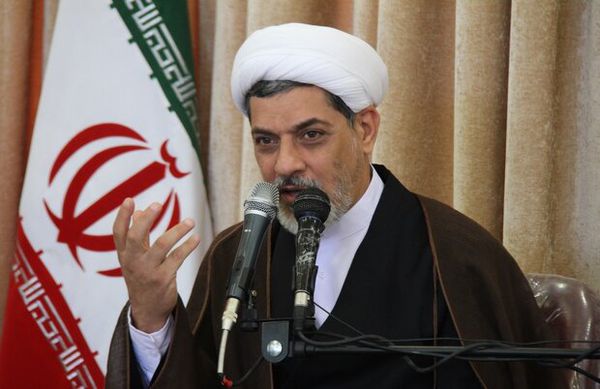Emphasizing the necessity of honesty of officials towards the people, Hojjatoleslam Rafiei considered trustworthiness to be a fundamental pillar of the Islamic Revolution.
According to Ashura News, quoted by Mehr News Agency, Hojjatoleslam Wal-Muslimeen Nasser Rafiei said in a speech to the officials: Gentlemen in charge, be honest with the people in your words and avoid misrepresenting the facts. The Iranian people are a worthy and loyal people; they have been with the Islamic system for nearly four decades and have remained steadfast in various ups and downs, from war to sanctions. But they do not accept lies and betrayal. One must be sincere and sincere with the people, remain trustworthy, and protect the revolution, which itself is a divine trust. Trust has various forms.
He continued: Sometimes trust manifests itself in objects; just as someone entrusts us with an object to return it on the due date. A historical example in this regard is the story of the key to the Kaaba. Uthman ibn Talha, the key-holder of the House of God, entrusted it to the Prophet of Islam. After the conquest of Mecca, the Messenger of God returned the key to him again. When the Prophet opened the door of the Kaaba and broke the idols, Abbas, the uncle of the Prophet, asked for the key to be given to him. At that time, the noble verse of Surah An-Nisa was revealed: ﴿Indeed, Allah commands you to return the trusts to their owners﴾. The Prophet returned the key to Uthman ibn Talhah, who was still a polytheist, and this trustworthiness led to his conversion to Islam.
Rafi’i added: During the Battle of Khaybar, the Muslims were in severe food shortage. A shepherd from the Jews of Khaybar came to the Prophet and declared Islam, while he had a large number of sheep with him. Some expected that these animals would be confiscated. But the Prophet asked: Whose sheep are these? The shepherd replied that they were the trusts of the Jews. The Prophet said: Return them all, then believe. The shepherd was afraid that he would not be allowed to return. The Prophet instructed to lead the sheep to the folds so that the trust would return to the original owners.
The seminary professor added: Trustworthiness is not limited to objects, but also includes people. As we read in the Ziyarat of the Commander of the Faithful (peace be upon him): Peace be upon you, O Trustee of Allah in His Land. Imam Ali, Imam Reza, and the Imam of the Age (may Allah grant him peace) are also divine trusts and these trusts should not be betrayed.


Post a comment